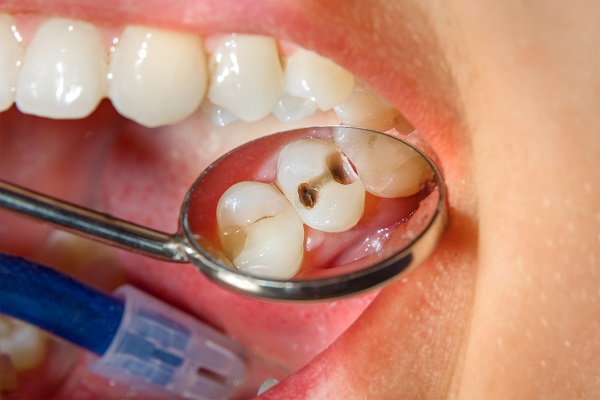The Effect of Cavities on the Entire Body

Cavities are small holes that only affect a small portion of a tooth, right? They can be if you see the dentist as soon as you notice them. For the people who put off seeing the dentist until they run out of options, cavities can become so much more.
A small hole in the tooth can become a bigger hole in the tooth. The bigger hole acts as a gateway for bacteria to gain access to the inner tooth. At this point, the problem tooth starts to lose structural integrity, as bacteria attack the enamel, dentin, and dental pulp. This is the point where a person starts to experience some level of toothache. Here are some possible scenarios for the person who finds a workaround for the pain.
A complete health dentist explains the anatomy of cavities
Many oral health problems come down to the unchecked activity of harmful mouth bacteria. The timely intervention will limit bacterial attacks to a tiny hole in the enamel. Ignoring the problem leaves the bacteria to ‘drill’ a hole right into the inner tooth. It just so happens that the inner tooth has blood vessels and other structures that link the tooth to its surroundings.
By extension, these surrounding structures have blood vessels that link the mouth to the rest of the body. This means that harmful mouth bacteria can access a direct link to the rest of the body. It then follows that a cavity has the potential to affect systemic health. Here is how:
1. An infection resulting from a cavity can morph into gum disease
When mouth bacteria create a hole in the tooth, their end-game is to create a bigger hole and eventually take over the tooth. Like a conquering army, the infection will do its best to spread to other teeth as well as the gums. If bacteria succeed in gaining a foothold in the gums, the following happens:
- Mild gum disease remains largely without symptoms, except for bleeding and some tenderness
- Periodontitis happens if gum disease progresses
- The infection from advanced gum disease causes inflammation or it could make its way into the bloodstream
2. Tooth infection can trigger an immune response in the form of systemic inflammation
If the body remains in a constant state of inflammation, other side-effects start to show up. Long-term inflammation could result in difficulty in the management of diabetes. Inflammation hinders the effective action of insulin, which can cause a rise in blood sugar. Studies demonstrate the link between the infection that is gum disease and diabetes
3. Infection can travel from the mouth to the rest of the body
Without medical treatment or an especially strong immune response, infections will spread. Even mouth bacteria can make their way to other parts of the body. For example:
- A serious bacterial infection of the mouth can make its way down the respiratory tract and into the lungs, causing bacterial pneumonia
- Patients with weak immune systems are at greater risk of a mouth infection becoming a systemic infection
- Bacterial colonies from the mouth can travel to the heart to cause endocarditis, an infection of the heart's inner lining
Over and above the infection angle of cavities, there is also a quality of life angle that ultimately affects general health.
Tooth decay can cause poor nutrition
The pain that comes with tooth decay limits the sufferer’s diet. This not only denies the person their favorite meals, but it also keeps them from taking in useful nutrients.
Keeping cavities at bay is easy
We have a complete health dentist that is dedicated to keeping your mouth and body healthy. If you have a cavity that’s nagging you, even if it is only at the back of your mind, call us. The dentist will take care of it in a few short minutes.
Check out what others are saying about our dental services on Google: Cavities in Palmer, AK.
Related Posts
An emergency dentist provides immediate care for urgent dental issues. Dental emergencies can happen anytime, often causing pain or discomfort that cannot wait for a regular appointment. Recognizing the signs of a dental emergency helps patients seek the right care quickly and can prevent further complications and protect their oral health.A dental emergency calls for…
Gum grafting is a procedure that is performed to protect a person's teeth from the effects of gum recession. The procedure can also be performed to improve the appearance of a person's smile.Gum recession occurs when tissues that support and surround teeth begin to pull away from them. It can result in teeth roots being…
A broken tooth does not always count as a dental emergency unless it requires immediate dental care. A broken tooth can be the result of biting into something too hard, especially if the tooth has already been weakened by tooth decay. It can also be caused by trauma to the face or habits like teeth…
Wisdom tooth extraction is often necessary in order to promote good oral health. The procedure can be daunting to some; however, the result is a healthier oral cavity, thus ensuring better overall health. Because wisdom tooth extraction is an involved procedure, it can be helpful to know what to expect beforehand. This allows for the opportunity…
